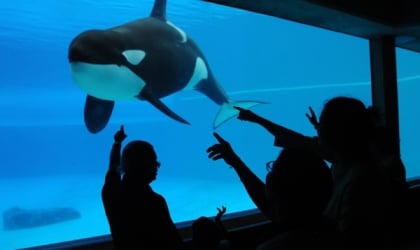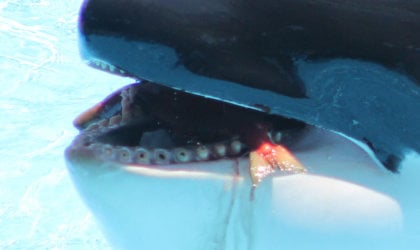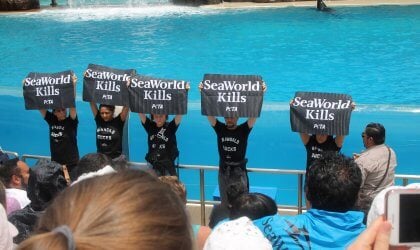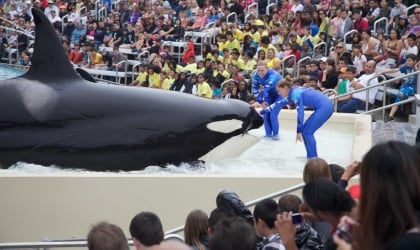As SeaWorld prepares to become a publicly traded company, it has made some confessions that are sure to give pause to potential investors. In a prospectus that it submitted to the Securities and Exchange Commission, SeaWorld admits that “[a]ll animal enterprises involve some degree of risk” and that at SeaWorld, specifically, “injuries or death, while rare, have occurred in the past.”
SeaWorld cites the 2010 killing of trainer Dawn Brancheau by an orca at SeaWorld Orlando and acknowledges that an inspection following Brancheau’s death by the U.S. Department of Labor’s Occupational Safety and Health Administration “resulted in three citations concerning alleged violations of the Occupational Safety and Health Act and certain regulations thereunder.”
Most tellingly, SeaWorld admits that Brancheau’s death garnered an enormous amount of negative publicity and was not an isolated incident and that “similar events that may occur in the future may harm our reputation, reduce attendance and negatively impact our business, financial condition and results of operations.” Considering SeaWorld’s long history of injuries and deaths from dangerous interactions between trainers and marine mammals, including more than 100 incidents of orca aggression, we’d say that’s a safe bet.
Potential investors, beware: Buying stock in SeaWorld might come back to bite you.




